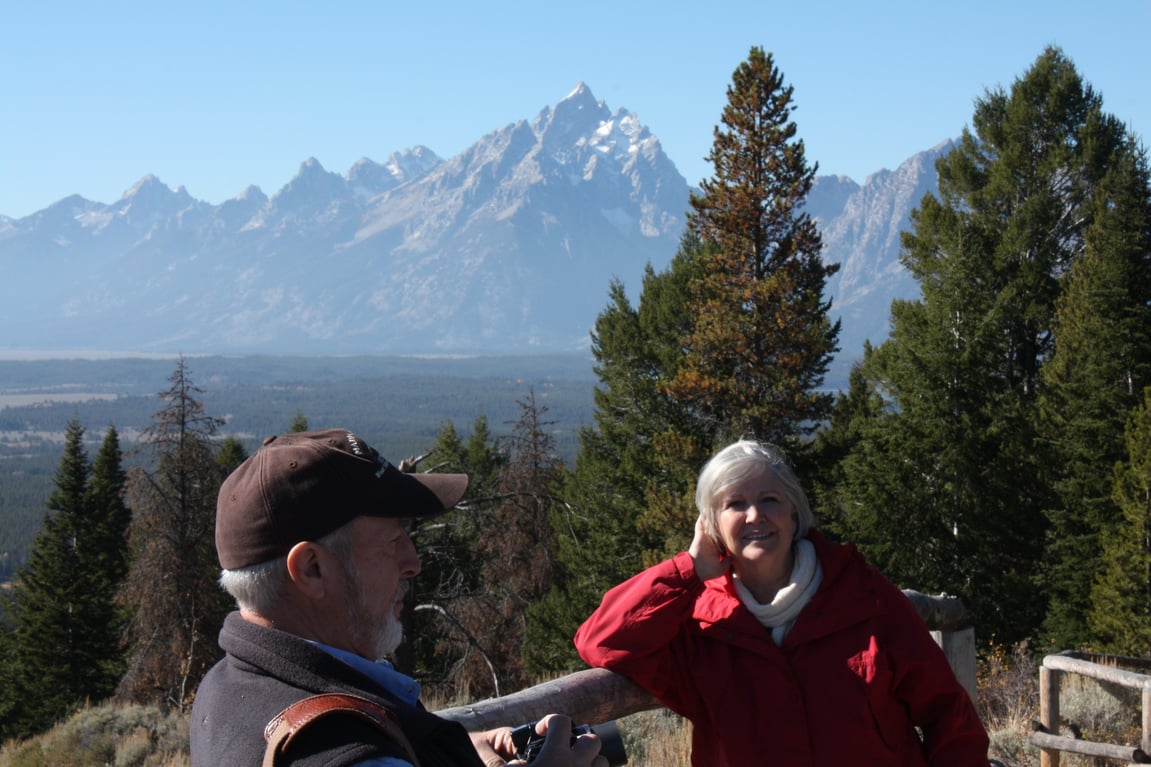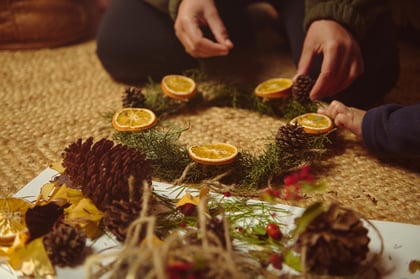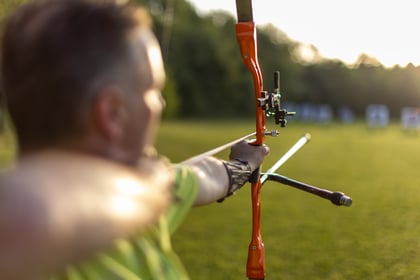Hiking For Seniors: How to Hike Safely In Your Later Years

Looking for ways to stay active in your senior years? Survival expert, outdoorsman and sportsman, L. Woodrow Ross shares the benefits of hiking and how to hike safely in your golden years.
As we advance in age, there are many things that we can do to help maintain our independence.
Our physical condition, for example, is something that must be maintained.
We wouldn’t neglect the maintenance of our vehicle or necessary appliances, so it stands to reason that our bodies may require some attention to maintain optimum condition.
Hiking is a wonderful activity that can augment other pursuits as well as provide necessary exercise.
It also offers opportunities for photography, leaf-watching, wildlife observation and a myriad of other activities. However, we must also be aware of the safety considerations.
Hiking should be enjoyable, not something to be endured.
Here are a few helpful tips hiking tips for seniors
If you are new to hiking, start small.
Don’t set out on a marathon hike and not expect sore muscles, overheating, blisters or other problems! Even a half-mile is a great starting point.
Select hikes that are within your capacity.
Most hiking handbooks will advise the relative intensity (miles, gradient, relative difficulty, etc.).
Online resources and apps, such as All Trails and Trail Link, also rate hikes by difficulty and technicality. If you're new to hiking or unsure how you'll do, stick with easy hikes no more than a mile in distance, and build from there.
If you're brand new to hiking, start with walking trails.
If you're new to hiking or walking for fitness, consider starting with walks within your community, such as parks or local flat trails, and gradually increasing the distance and difficulty.
Learn to pace yourself.
It is advisable to hike with those who have similar capabilities, such as people around your same age and fitness level.
Don’t try to start off trying to keep pace with an experienced hiker. That will lead to sore muscles and discomfort.
Don't hike alone.
Although some people enjoy the solitude of solo-hiking, it's not advisable until you get some experience under your belt.
Falls, twisted ankles, weather events, getting lost and wildlife encounters happen every day on hiking trails, and you'll be much safer and better off with a friend.
If you choose to hike alone, always take a cell phone with you with GPS capability, tell someone where you're going, choose a familiar hiking spot and consider something for protection, such as mace or bear spray.
Choose your shoes wisely.
Good quality hiking shoes can make all the difference to your outdoor expenditures.
As we get older, our feet, gait, strength, endurance, ankle mobility and balance change, which makes seeking out some professional help wise before you hit the trail.
Outdoor stores typically have well-trained staff who can help you choose the best shoe for your feet and hiking needs.
Just remember, new hikers require some breaking in, so wear them for a few days before hitting the trail.
Related reading: 10 Ways Rural Living Benefits Heart Health
Additional Hiking Tips For Seniors Ready To Hit The Trail
Better safe than sorry is an old adage that definitely applies to hiking in our more advanced years.
Here are some tips that will help you avoid common pitfalls once you're ready to really hit the trails.
- Carry a water bottle and stay hydrated. Don’t wait for an overpowering thirst, but sip frequently.
- It’s not a bad idea to carry a change of socks. Socks that are wet with perspiration or from stepping in a puddle can create a blister rapidly. I recommend using a two-part sock system. It consists of a thin, liner sock of Thermax® or similar wicking material and a heavier wool outer sock. In extremely hot weather, the liner alone may suffice.
- Don’t wear new hiking boots or shoes on a hike, but break them in by wearing on short walks or around home. I mentioned this earlier, but it happens so commonly it's worth repeating.
- If a blister or “hot spot” develops, be sure to have a handy kit with moleskin or band-aids. You may also include other items such as sunscreen, wound cleaning solution, bug spray, sting oinment and lip balm that might be needed in an emergency.
- If you have ever had ankle problems or fear a potential sprain, consider adding an ankle wrap (Ace elastic bandage) to your emergency kit.
- Choose a lightweight backpack or fanny pack for packing water, snacks and emergency items.
- Dress adequately for the season. If the weather is questionable, carry rain gear. Always wear a hat. This will provide protection from the sun or rain. Sunburn can be very painful and serious before you realize it. Weather can change on trails fast, especially in the mountains, so prepare accordingly.
- Carry a snack such as granola or a similar snack bar for quick energy.
- Carry a hiking staff or hiking poles. These will be a welcome aid on steep climbs, and you will be amazed at how helpful it is. I have a number of wooden hiking staffs and always keep one handy in my truck for impromptu hikes. These are also essential when wade fishing for trout.
Thinking of involving the grandkids?
Check out: Hiking With Kids---Mistakes To Avoid For Happier Trails for helpful tips.

Health Benefits of Hiking for Senior Adults
There are a number of positive health benefits of hiking for senior adults, and anyone interested in getting in shape, spending more time in nature, destressing and getting off their screen.
Some examples include:
- Helping with balance issues and strengthening small muscles and tendons.
- Improving endurance and cardiovascular health.
- Improved bone density and stronger muscles.
- Generally improved sense of well-being and mental health.
- Less joint and arthritic pain.
- Better sleep from the fresh air, nature therapy and exercise.
- Less stress
- An immunity boost from the exercise, greenspace and phytonicides in trees, which enhance natural killer cell function
- Improved self-esteem and confidence
- Greater longevity! Walking or any sort is associated with longer life and a regular pass time of cententarians worldwide
Learn more about the health benefits of spending time outdoors in: 7 Benefits Of Outdoor Activities For Seniors
There's No Better Time To Start Hiking Than Right Now
Whether you're an experienced hiker or just starting out, don't let age stop you or slow you down. If you're healthy and physically capable (check with your doctor if you're unsure), hiking is a wonderful source of exercise for body, mind and soul.
Follow these tips and you can make hiking a wonderful experience, not a grueling activity.
It can become almost obsessive once you learn to pace yourself and become immersed in the beauties of nature around you.
Each hike will open up a new world of adventure and remind you of the wonders of nature.





.jpg?width=100&height=100&name=IMG_1638%20(2).jpg)





Your email address will not be published. Required fields are marked*